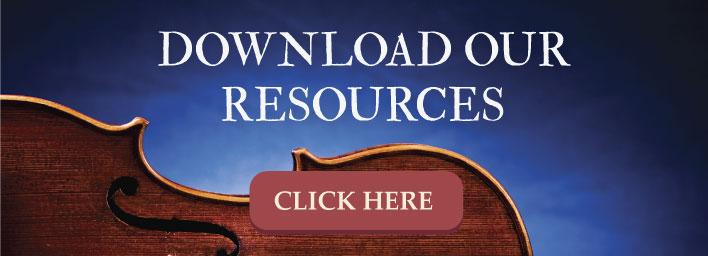Helpful Hints to Overcome Stage Fright and the Jitters

Few things are more frustrating or depressing than knowing that you can do something perfectly, but are unable to perform it in front of others. Performance anxiety is a very common complaint among athletes, politicians, and performers, because of the power it can have over your success. In fact, being able to overcome stage fright is what often dictates whether or not someone chooses a profession in the spotlight or opts for something else entirely.
For musicians, uncontrolled performance jitters can effect whether or not you land a coveted seat in an orchestra or earn a spot in a specific school – not to mention feeling embarrassed. However, you can learn to cope with performance anxiety and overcome stage fright. Like any worthwhile pursuit, it just takes practice and dedication, and the ability to create an effective response for your specific needs. These helpful hints will lay the foundation for developing your own personal solution.
- Understand the symptoms. To effectively overcome stage fright, you must understand the symptoms and why they occur. Essentially, the stress inducing situation (recital, audition, or similar solo performance) causes your body to release adrenalin, from an instinctive “flight or fight” response. This results in increased pulse, trembling, sweating, nausea, and even vision changes. All of which make performing on a string instrument nearly impossible. By recognizing the catalyst, you can find ways to control it.
- Be Prepared. One of the best ways to limit performance jitters is to be ready. Prepare yourself through deliberate practice until you know you have it down right. This will provide you with confidence and reduce stress.
- Limit caffeine and sugars before your performance. Sugary, caffeine filled soft drinks, energy drinks and foods exasperate the additional adrenaline your body produces, making your symptoms worse.
- Consider your diet. Especially before a performance, make sure that you’ve equipped yourself with well-balanced nutrition. High protein snacks (nuts, yogurt, or granola) and carbohydrates are good fuel, but if you know that your stomach gets upset, you may want to eat sparingly until afterwards. The night before, eat a balanced meal, and keep protein bars nearby if you need them. You don’t want to be hungry when on stage, which can also produce jitters, headaches, and other problems.
- Visualization techniques. Overcoming stage fright is a mental process. One of the best ways to prevent and reduce performance anxiety involves meditation and visualization. You should set aside at least 5-10 minutes every day to focus your mental energy on success. This will build effective self-esteem and train your body to reduce your stress. Imagine yourself performing the entire piece, and imagine how happy and impressed the audience is. Visualize yourself placing your fingers and bow correctly, and imagine the clearest, most beautiful tones possible.
- Learn controlled breathing techniques. Controlled breathing is effective for reducing pain (taught in Lamaze) and eliminating stress. Practice this by really slowing down your inhaling and exhaling. For example, try to inhale for a count of five, then exhale for the same amount, but gradually increase the length of each breath as far as you can. This is an effective way to overcome stage fright even a few minutes before a performance.
- Banish negative thoughts. Your mental processes effect your physical well-being. Focusing on what could go wrong is a great way to ensure that it will.
- Carefully choose your attire. When you look good, you feel good, so don’t neglect your appearance. Also, choose clothing that will not hinder your specific playing technique. It’s a good idea to practice in the clothes you plan to wear, that way you’ll know beforehand if your collar or cuffs will be in the way.
- Practice under stress. Another great way to reduce performance anxiety is to become familiar with it. See if you can create the same type of stress inducing environment to practice in, in order to acclimate yourself to it. Dutch researchers have conducted various studies that show that when you become accustomed to performance jitters, you can discount them.
- Choose a friendly face. Before you take the stage, look out into the audience and select one or two people who have nice faces to focus on. Imaging those individuals enjoying your performance is a good way to deflate the anxiety you feel by lumping all of the audience into one giant, criticizing mass.
Just because you have performance anxiety doesn’t meant that you have to give up playing. You can overcome stage fright by discovering ways to reduce stress that work for you. To get the most out of these hints, try to incorporate them as part of your daily practice routine. The more you train yourself, the easier it will be to banish unwanted stage fright.


